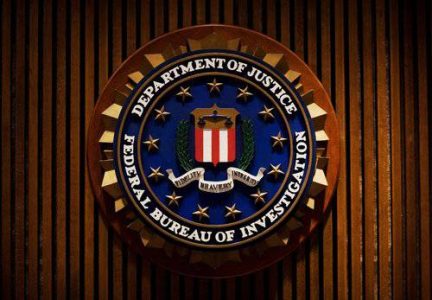
The FBI opened terrorism investigations into Palestinian solidarity group
Louis-based activist and academic Mark Chmiel received a message on his answering machine from the Federal Bureau of Investigation. The FBI wanted to talk to Chmiel about trip three years ago that he and other St. Louis activists took with the International Solidarity Movement to the West Bank, in the Israeli-occupied Palestinian territories. When Chmiel’s attorney reached out to the FBI, they did not respond.
Chmiel later wrote that he was motivated to travel to the West Bank by Palestinians’ calls for volunteers, international organizations’ inability to deal with the occupation, and his own country’s complicity in Israel’s actions. The International Solidarity Movement, or ISM, which would be Chmiel’s vehicle, encourages international volunteers to come to the occupied territories and engage in nonviolent direct action against the occupation. During the delegation Chmiel was on, Israel soldiers opened fire on a Palestinian protest and injured one of the St. Louis activists. An aging Holocaust survivor who was also part of the delegation was subjected to a humiliating and invasive search when departing from Israel.
These deprivations of rights experienced by Americans at the hands of Israeli authorities, however, were not what interested the FBI. Instead, the FBI was conducting an international terrorism investigation into Chmiel and another activist from the delegation (The Intercept reached out to the second activist, who asked that their name be withheld).
Neither Chmiel nor the general public ever learned of the official terrorism investigation until now. Its existence was revealed by hundreds of pages of FBI files about the International Solidarity Movement obtained by The Intercept through a public records request. The documents make references to other investigations from FBI field offices around the country involving ISM or its members, but many of the files are so heavily redacted that it is impossible to tell what they refer to. In at least some instances, the FBI appears to be monitoring the political activity of ISM members or at the very least noting ISM affiliation of subjects of FBI monitoring.
It is clear, however, that the FBI conducted at least two major investigations into ISM. In addition to the international terrorism investigation into the two St. Louis activists, the FBI’s Los Angeles Field Office initiated a domestic security investigation into ISM as an organization.
Nothing in the documents suggests any of these investigations ever resulted in criminal charges. Instead, the documents reveal sprawling investigations involving FBI field offices in multiple states and the national headquarters, as well as local law enforcement. FBI agents resorted not only to confidential informants and physical surveillance, but a scandal-prone unit formed in the wake of the September 11 terrorist attacks accessed the phone records of at least one activist. In both investigations, the FBI relied heavily on biased right-wing publications making fantastical claims of questionable veracity.
The investigations, the documents show, cast a wide net. Other groups making nonviolent objections to Israel’s occupation of Palestinian territories were named as associates of ISM; their board members and other affiliations were listed in the documents simply owing to glancing associations with the group under investigation.
Throughout the documents, the political beliefs of ISM members and other Palestinian solidarity activist were treated as though they were synonymous with terrorism. The approach is of a piece with the FBI’s long history of using its intelligence and national security powers to track domestic dissent.
“These cases demonstrate the FBI’s unwillingness to distinguish non-violent civil disobedience protesting government policy from terrorism,” Michael German, a former FBI agent and current fellow at the Brennan Center for Justice, who reviewed the documents, told The Intercept. “The first” — the Los Angeles probe — “shows the FBI doesn’t even follow its own rules in opening Terrorism Enterprise Investigations. And the second” — in St. Louis — “shows the FBI’s use of tools designed to target foreign enemies against Americans exercising their First Amendment rights.”
The documents obtained by The Intercept were released in response to a Freedom of Information Act request filed in February 2015. The FBI, however, only began handing over the files in the fall of 2019 after litigation. While the FBI purports to have processed all documents exclusively in its possession, it maintains that it located other records that originated with or mention other government agencies and declined to release them. (The files also reference a separate earlier probe, based out of Los Angeles, into four individuals instead of ISM as an organization. Despite the allusions to this investigation in the documents the FBI sent in response to The Intercept’s FOIA request, no documents directly from the investigation were included in the released materials.)
For ISM members, the episode is a surreal view into the priorities of America’s premier law enforcement and domestic intelligence agency. “The fact that ISM was under this kind of extensive investigation is ridiculous and a complete waste of taxpayer money,” ISM co-founder Huwaida Arraf told The Intercept. “ISM has always been open and transparent about who we are, what we do, and what we stand for, which is purportedly what this country stands for — freedom and human rights.”
Source: The Intercept





